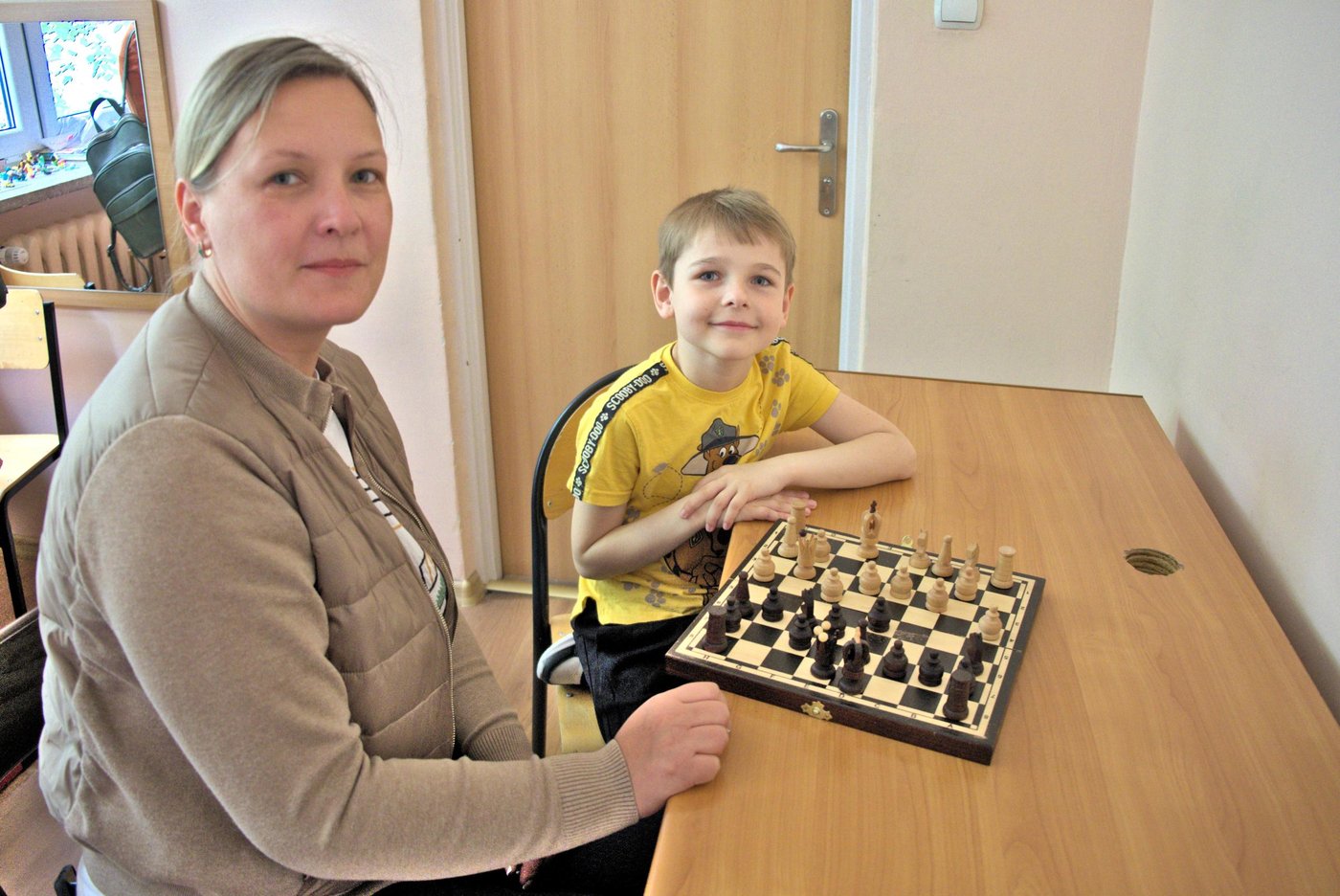Starting a new school in a new country can be a daunting experience, especially when you don’t speak the language. A new initiative in eastern Poland is helping Ukrainian refugee children to settle in.
“I like maths best. I’m already doing division and I want to go to the third class, because there it’s one thousand minus nine hundred! I’m doing maths with Mr Oleg and Mrs Anastasia, and I like it so much that I’m already looking forward to it,” says Vadim.
Mrs Anastasia stands beside him. She tells us that Vadim beats her at chess. Asked if he would like Mrs Anastasia to help him next year too, the boy smiles and replies: “Yes!”
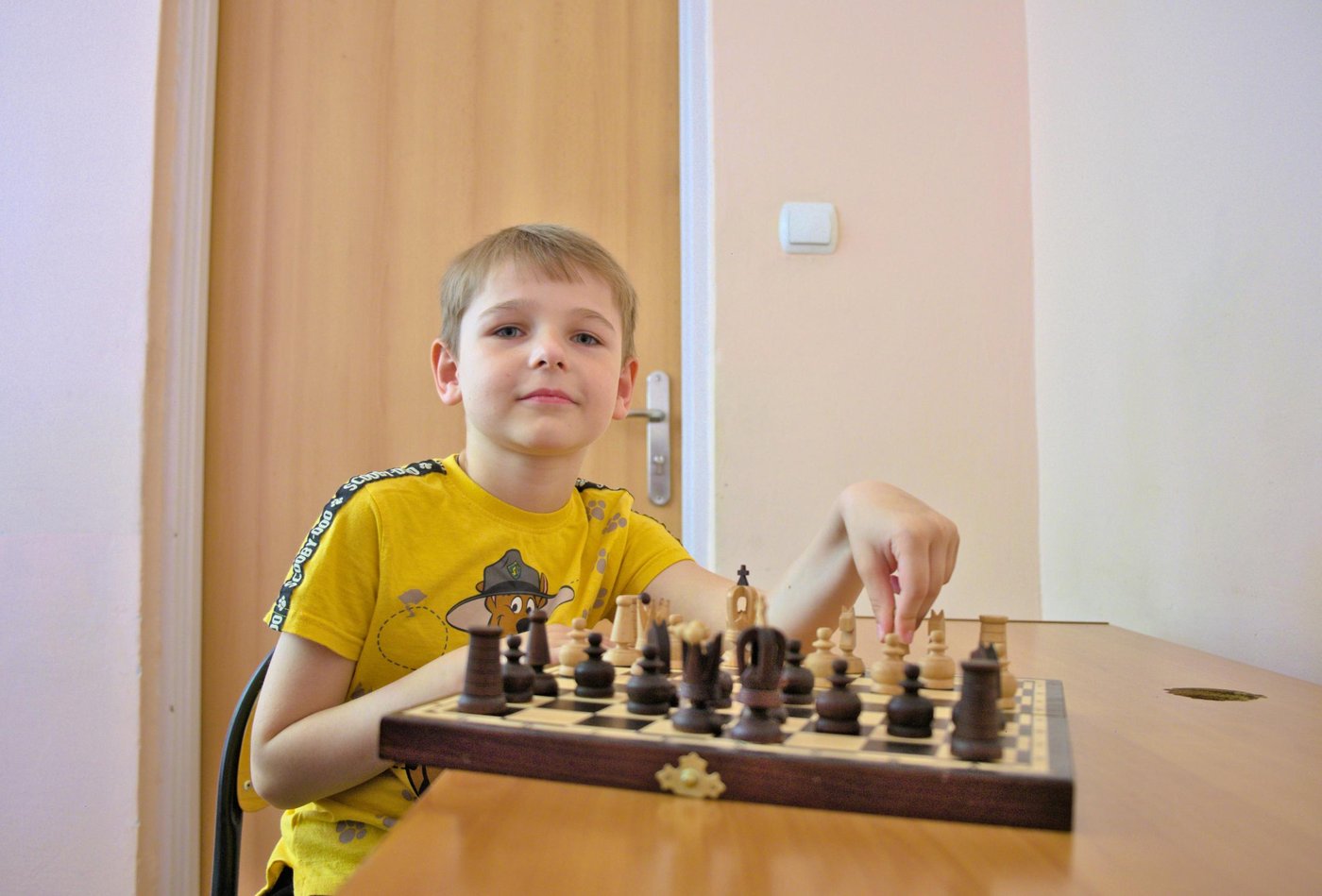
Vadim, like many children from Ukraine, came to Poland in 2022 because of the war. He is now attending the Polish Mieszko I Primary School No. 19 in Białystok. The development of his mathematical skills, his cheerful disposition and his confidence are not always evident in refugee children. They would certainly not have been possible without the help of people like Anastasia.
But Anastasia Habis is not a teacher. She is an “cross-cultural assistant”, a profession that was previously very rare in Polish schools. With the huge challenge of welcoming thousands of Ukrainian children into schools, however, it has become a much sought-after profession.
For the past school year, Anastasia has been working for the Polza Foundation, an NGO supported by the Norwegian Refugee Council (NRC). The Foundation has ensured that three schools in Białystok have permanent assistants like Anastasia.
Help for children – and their teachers
As she walks through the school corridor between classes, Anastasia’s attention is in demand from pupils and teachers.
“I help the children at every break. There is no such thing as quiet time here. The children come and ask all sorts of questions, and the teachers also bring up different issues,” says Anastasia.
“For example, one teacher wants to understand more about the behaviour of the children in her class. They also ask about the children’s attendance, because a lot of children have days when they don’t come to school and this needs to be explained.”
How does Anastasia look after the children?
“When the children come, we always do something together. We paint, or the children play chess, or make things with plasticine. We go to the playground, or if it’s spring or autumn with the younger classes, we learn vocabulary about the seasons,” says Anastasia.
All the children like to come to these extracurricular activities. “In the playground, Polish children communicate very well with non-Polish speakers,” explains Anastasia. She believes this kind of social interaction is of great value for their education in a culturally diverse reality.
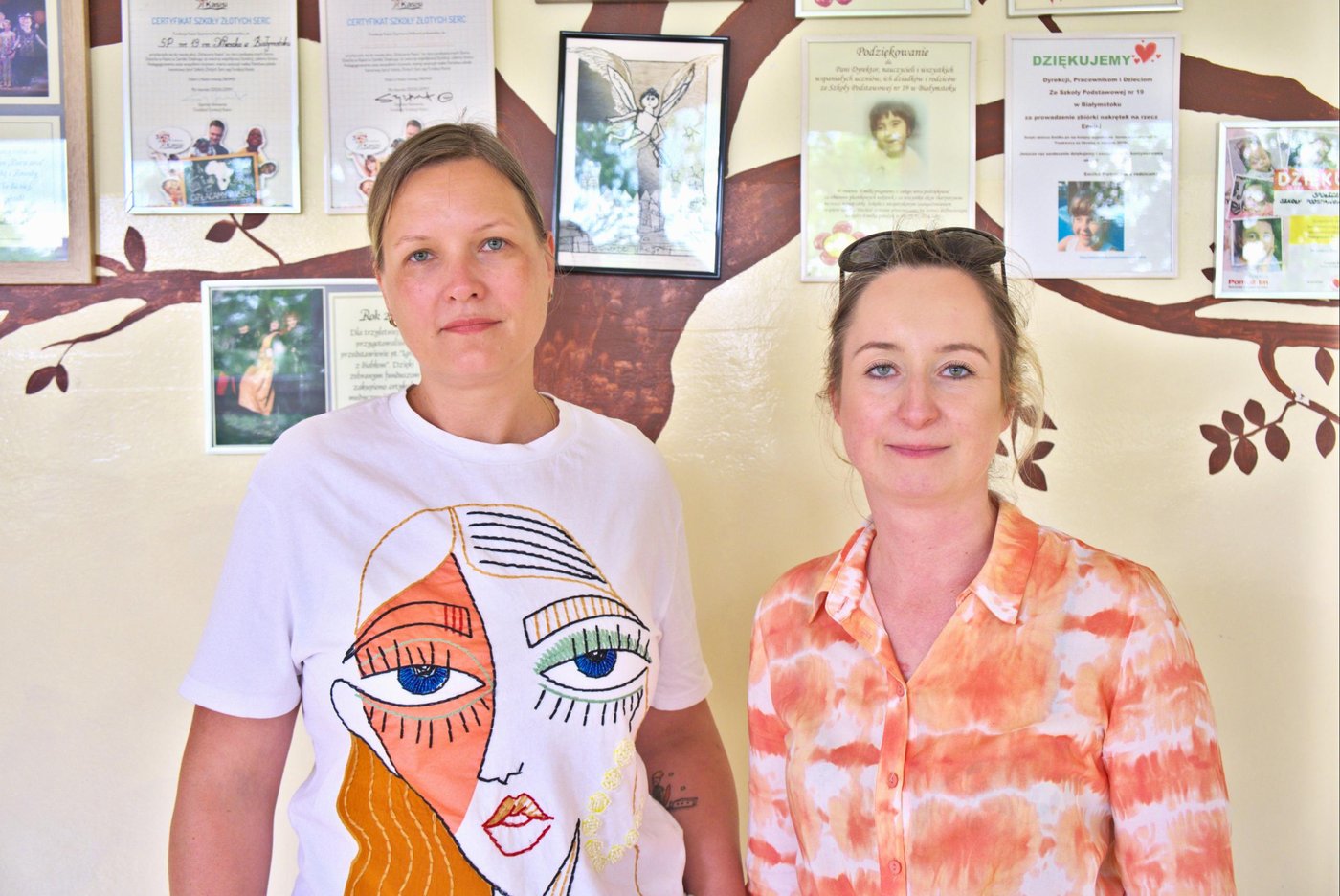
Urszula Adamska, Polish teacher at the school, agrees:
“Mrs Anastasia’s help often consists of sitting down with refugee children, explaining the lesson and then practising with them,” she says.
What would have happened if Anastasia had not been there?
“My attention would have to be focused more on the children with a migration background, and this would mean that I would have to give less information to all the pupils and do fewer exercises. I would have to divide my time between the pupils who understand better what I am saying and the non-Polish speaking children.”
The parents get support too
Headteacher Elzbieta Zimnoch says that Anastasia’s work benefits the whole school environment.
“Thanks to the Polza Foundation and the assistants, we are able to support the parents in this difficult time by providing psychological help and Polish language courses for both children and parents,” she explains.
Children and parents can also attend film screenings and discussions together while learning Polish.
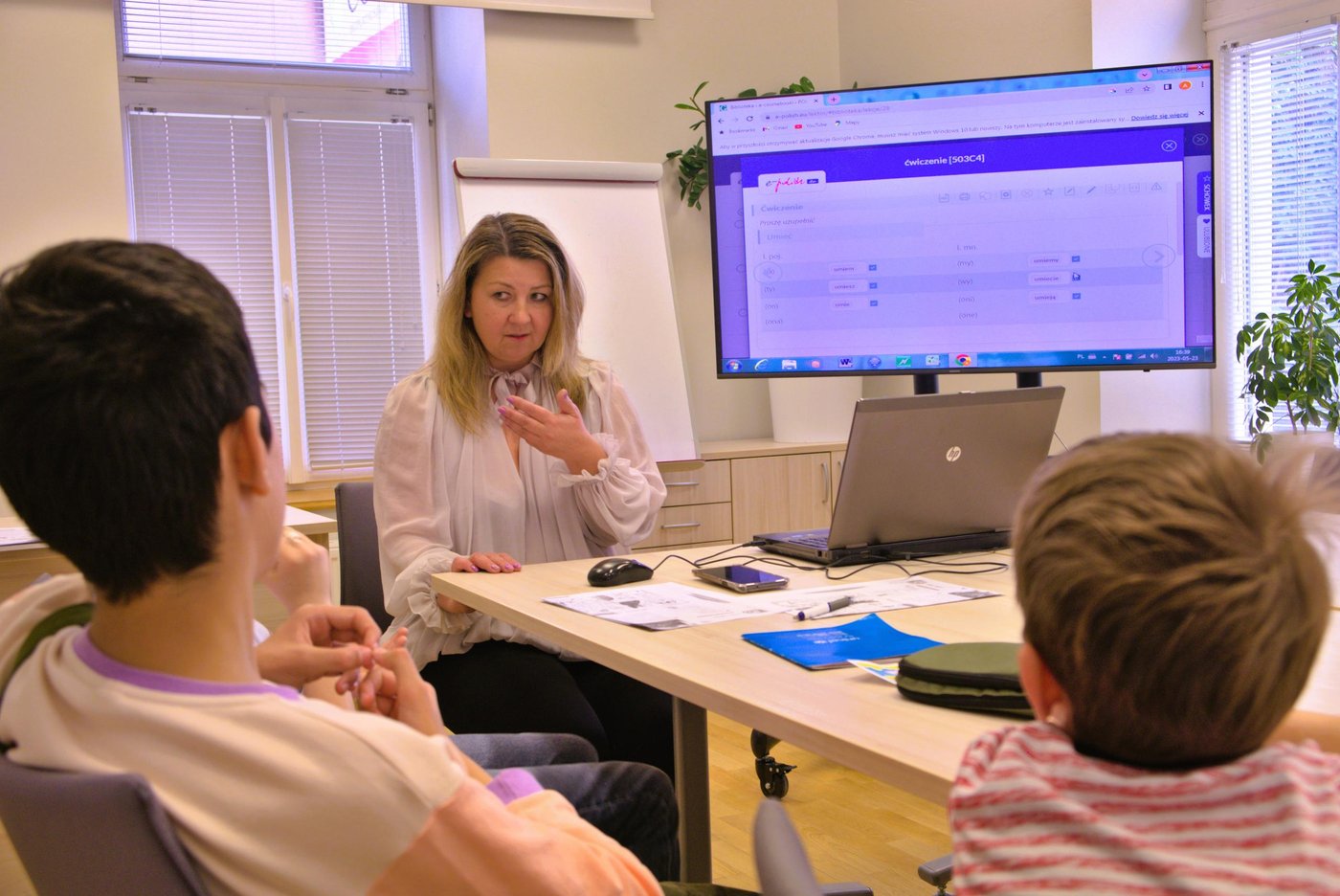
From the very beginning, when a child with a migrant or refugee background enters the school, the assistant takes care of them. The parents are included in a group of parents with similar backgrounds. The school organises meetings so they can get to know each other and the school staff.
The parents come to Anastasia with any problem related to the school, whether it’s related to education or to relationships with other children. This helps to resolve misunderstandings.
“When a lot of [refugee] children arrived, we wanted to give them as much care as possible. We didn’t realise that the Polish children might feel that everyone was more concerned with the foreign children and less with them,” says Ms Elzbieta.
“The Polish-speaking children, for example, did not understand why the refugee children did not have to put their phones down during lessons. They felt they were allowed more. But translation apps on phones are sometimes a necessity in lessons for non-Polish-speaking children.”
“These were the kinds of problems that we were able to resolve with the assistants on an ongoing basis. Her [Anastasia’s] presence in the classroom allows her to see what a student is struggling with. She is an interpreter in the student-teacher relationship, but it is also important that she is the kind of person the children trust.”
Anastasia has got to know each of the families of the refugee children. She knows their problems and challenges better than anyone else in the school. The parents of Polish children also benefit from her help.
“Often parents have to explain some situation in their child’s relationship with a foreign child. Anastasia always says that basically every child is similar because they have similar needs. We have not had many problems,” says Elzbieta.
More than half of Ukrainian children do not attend Polish schools
Even before the escalation of the war in Ukraine, the Mieszko I School had a certain number of non-Polish-speaking children. Now, around 90 of the 600 pupils are from a migrant or refugee background. But many Ukrainian children in Poland don’t attend school at all.
The Centre for Civic Education, a partner of NRC, found in a recent survey that up to 56 per cent of Ukrainian children do not study in Polish schools. At the secondary level, the figure rises to 78 per cent. It is estimated that there are up to 200,000 Ukrainian refugee children currently outside the Polish education system.
Some take part in distance learning with schools in Ukraine, while a small number study at Ukrainian schools in Poland. Many, though, have dropped out of the education system altogether.
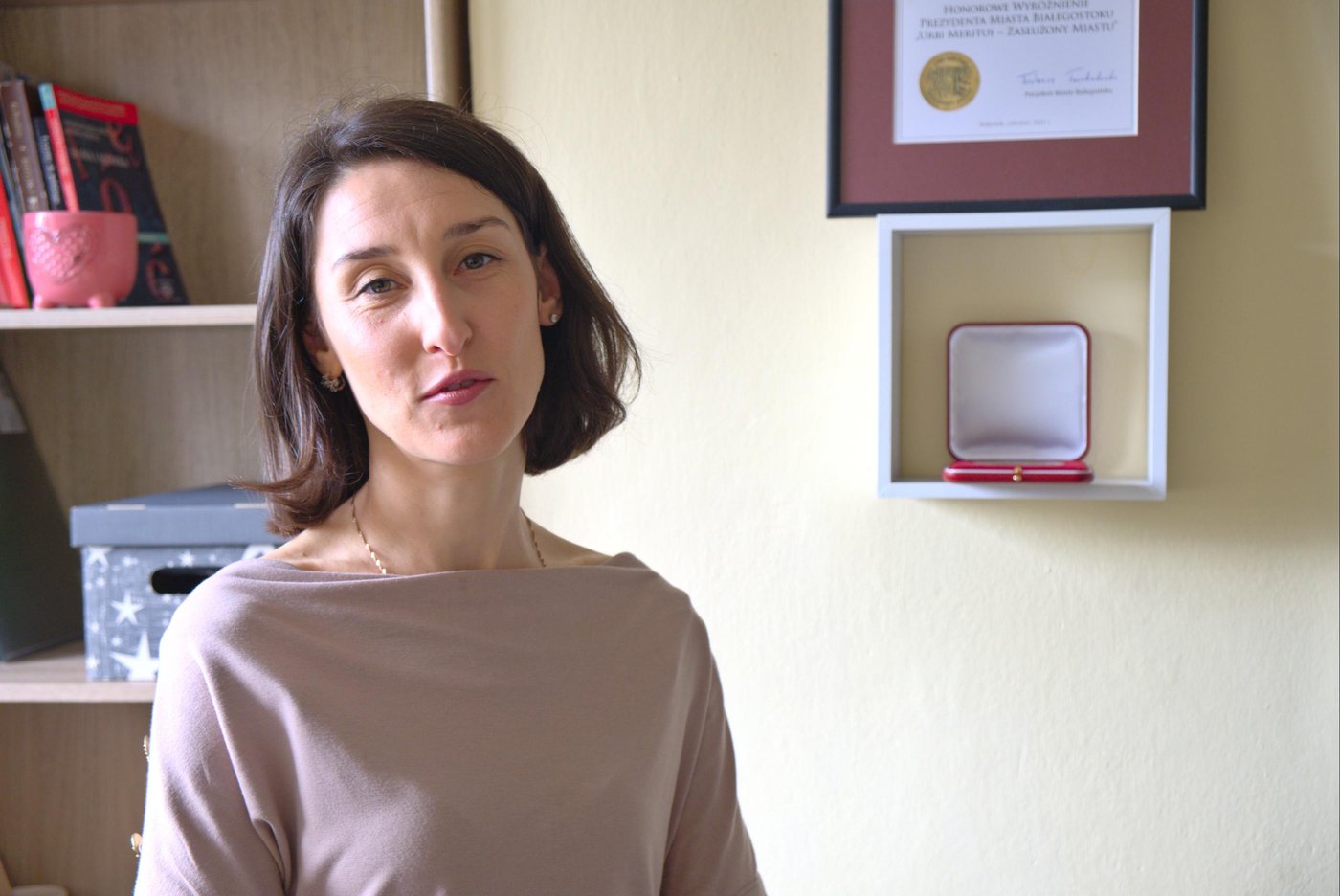
Help is at hand
The Polza Foundation was founded five years ago by two women who have experienced migration and the difficult process of adapting to life in a new country. Daria Szydlowska is from Belarus and Kateryna Hatsko is from Ukraine.
Daria explains that they quickly realised how important it is for schools to help migrant and refugee children learn. What struck her most was hearing it from the children themselves. On one occasion, the Foundation held a session to familiarise the children with what school would be like. The classes were led by a Polish-speaking person together with a person who spoke the children’s language.
“Suddenly one of the boys shouted: ‘Do you want to come to school with us?’” Daria recalls. “We understood how difficult it was for the children to find themselves in a new school, in a new country, not knowing the language.”
The Foundation, therefore, tries to be comprehensive in its assistance. Not only does it provide support for school assistants, but it also organises Polish language courses for children and young people, as well as for adults of all levels. Parents and children can also count on joint meetings with psychologists. This is an invaluable help, enabling refugees to adapt more quickly to their new surroundings.
Cross-cultural assistants are a central part of what the Foundation offers. Indeed, Daria believes that all schools could use their help.
“There have always been migrants, even before the war,” she says. “It should be normal that there is such a person who helps with learning, with integration, with culture. It helps not only the teacher, but the entire school.”
Five assistants for 200 schools
Unfortunately, this kind of assistance is currently only available in a few schools, even though it is mandated by Polish law.
Poland’s Education Act states that every child has the right to a support person at school, if they are not a Polish citizen and do not speak the language. If the child is a refugee and the headteacher of the school supports it, in theory, such help cannot be refused. In order to employ an assistant, the school must apply to the supervisory authority – typically the relevant local authority.
If these solutions are available, why do so few schools use them? The Foundation for Social Diversity (FSD), another partner of NRC, believes it knows the answer. FSD has been working on the cross-cultural assistant scheme since its introduction, and claims that the supervisory authorities in Poland are not providing enough funding to support refugee children.
At the same time, schools rarely request this kind of support, most likely due to a lack of knowledge about the regulations, or concerns about how to find such assistants and how best to work with them.
In addition, cross-cultural assistants are often regarded as having low status within the education system. They are employed in a support role, their pay is disproportionately low, their employment is insecure and the work they do is sometimes undervalued, even though they have important skills such as language skills. They often have to work outside of school hours and have no obvious opportunities for further training.
“As long as the education system does not have the capacity to organise this, citizens will have to take care of it,” says Daria.
“We have heard from others that it is good that at least two organisations in the city are providing these five assistants. But how many schools are there in Białystok? Two hundred!”
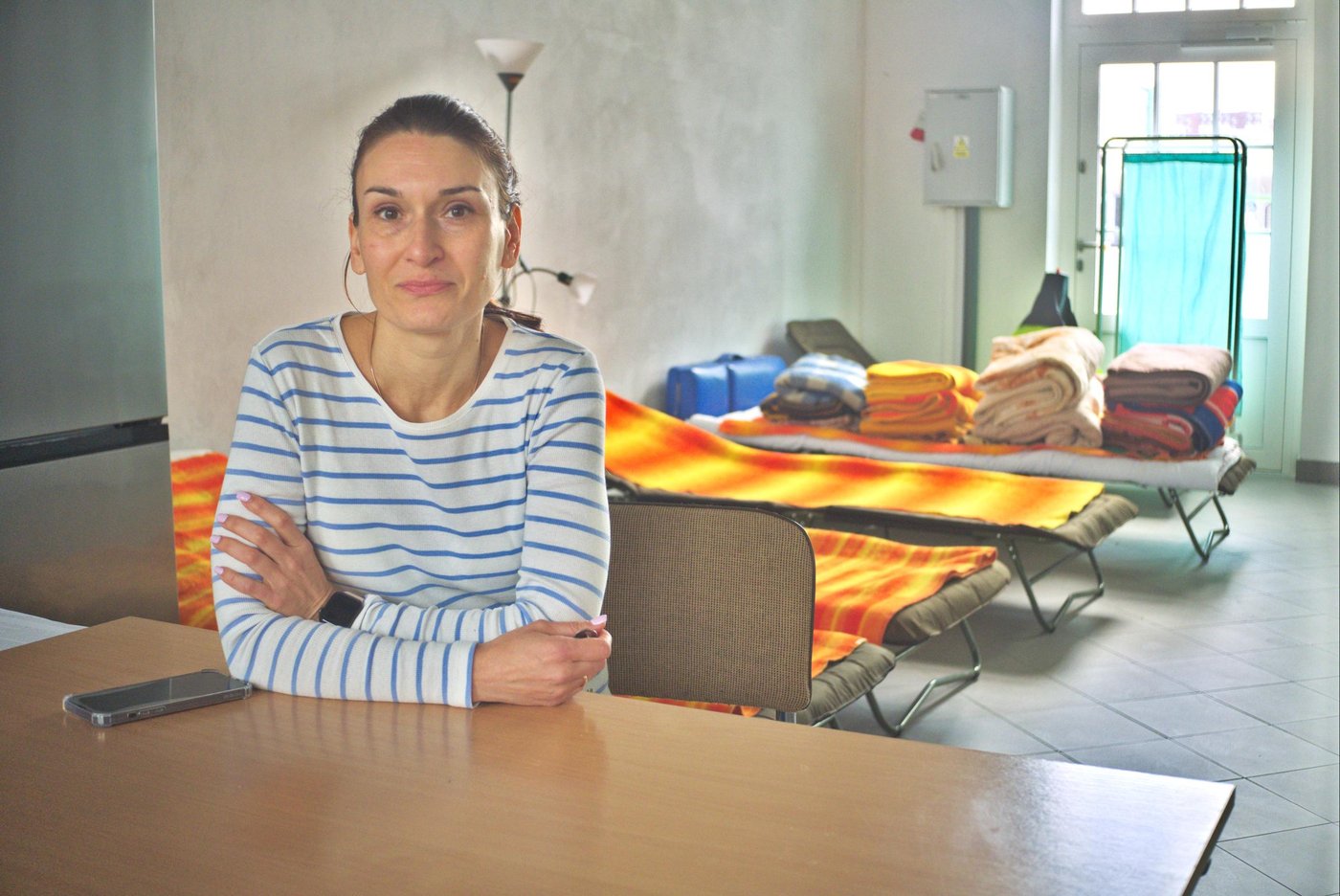
Finding your place
Kateryna Hatsko stresses that the role of the cross-cultural assistant cannot be overestimated for the children themselves.
“For them, it’s a person who is like a second mother and at the same time a colleague, a friend,” she says. “Someone you can come to and talk about what's difficult in the classroom.”
Headmistress Elzbieta Zimnoch is full of praise for her work with Anastasia:
“She is an indispensable soul who is always there when a child, parent or teacher needs her. We learn a lot from her about relationships and ways of working together.”
Thanks to organisations such as Polza and FSD, many schools in Poland have been able to benefit from the support of cross-cultural assistants. However, organisations that have supported assistants thus far are concerned about the lack of funds for the next school year. They are calling for additional resources to ensure that the law designed to help refugee children is effectively enforced.
A postgraduate course, “Cross-cultural Assistance in Schools”, has recently been launched at the University of Warsaw, in collaboration with the FSD and with the support of NRC. Organisations are also working to raise awareness of cross-cultural assistants and increase their status within the education system.
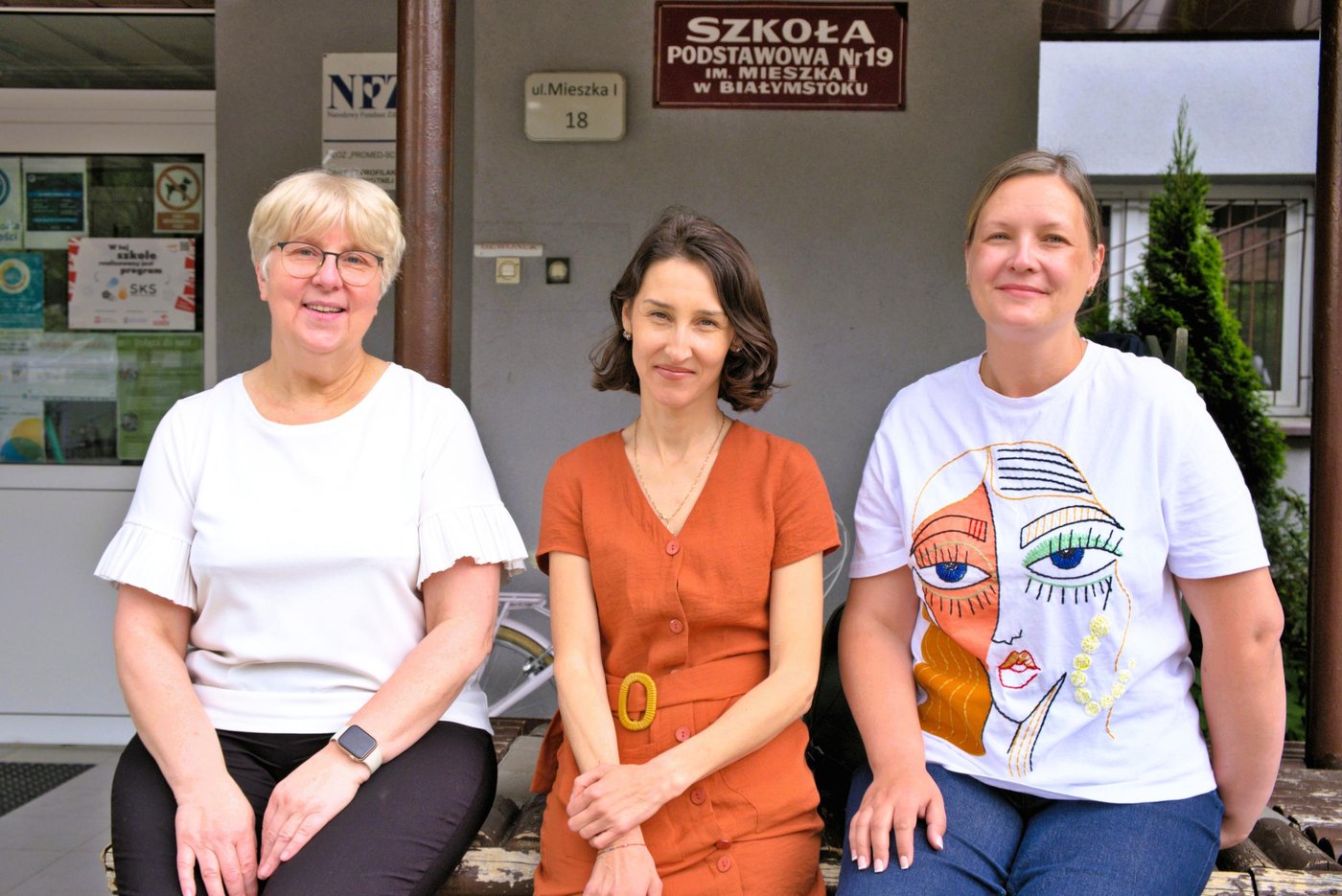
There is hope that cross-cultural assistants will find their place in Polish schools. Anastasia has certainly found hers. From the very beginning of the escalation of the war in Ukraine, she wanted to do something to help, volunteering at Białystok City Hall.
“When Daria encouraged me to do schoolwork, I really didn’t think I was up to it. Me at school? It's like another planet,” Anastasia says.
“Then, after interacting with the children, the parents and the school administration, I thought that this is my place. A place where I can support and do something that will help the children, the parents and the teachers.”


